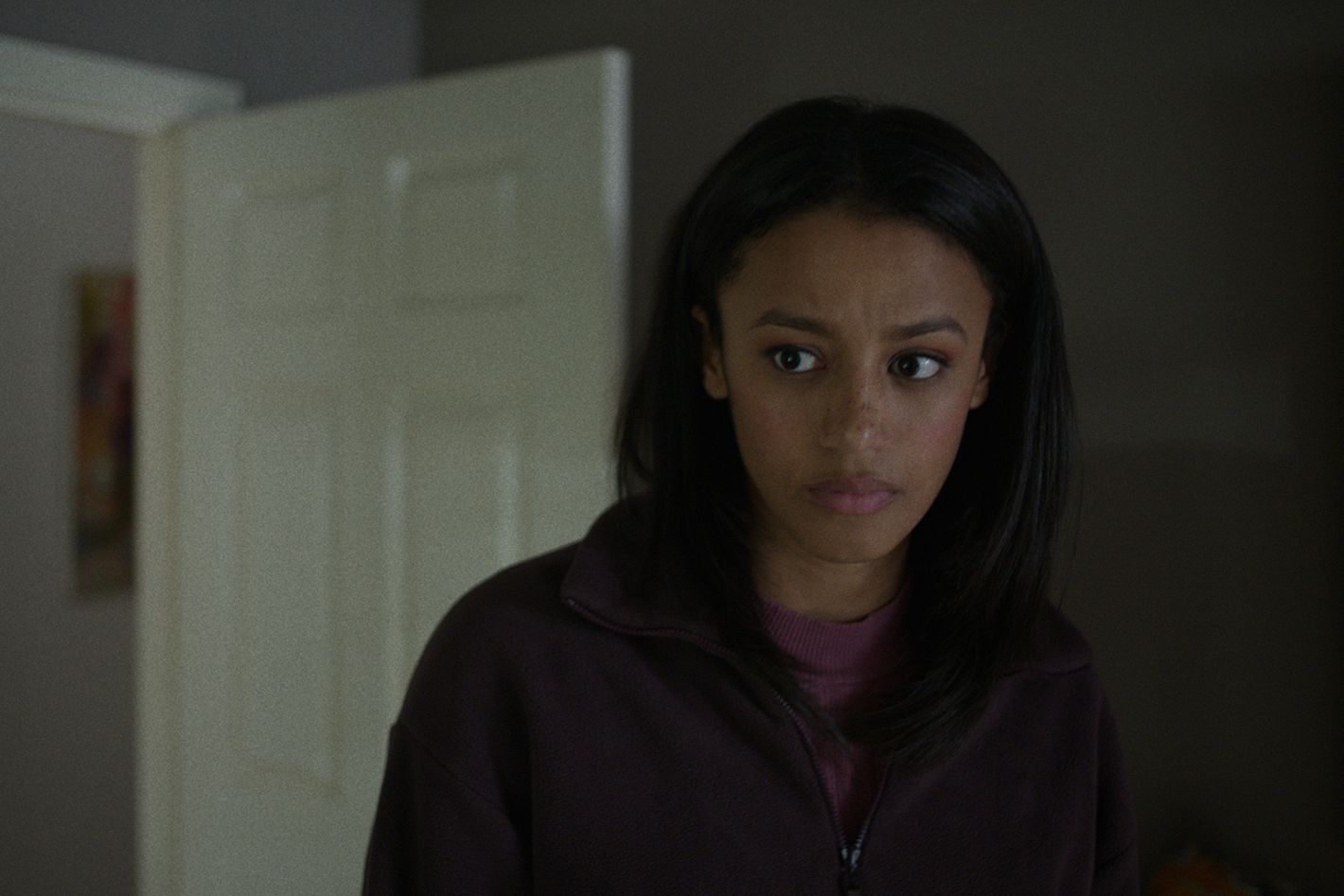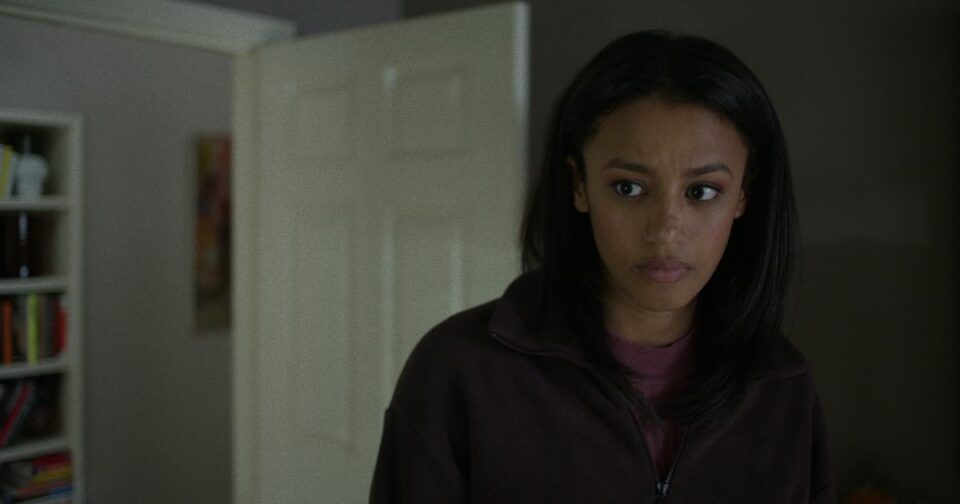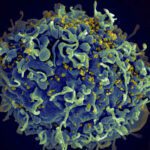[ad_1]

In some sense, Baby Reindeer ends with what we knew was true all along: That once Donny spoke his truth and let it out into the world, everything would be at least somewhat better. As is inevitable these days, someone in the crowd recorded his meltdown and posted it online. The clip quickly went viral, drumming up sympathy for what Donny had gone through and better gigs, podcast and radio interviews, and more receptive audiences. While we don’t really get a sense of what Donny’s new material is like, there’s no suit or briefcase, though there is a quick, gallows humor nod toward what landed him in the public eye in the first place in the bit we see.
The emails from Martha stop, too, for whatever reason. Maybe it was the glass smashing and the claims that he “ruined” their relationship. Maybe she saw the video and started to feel some sort of kindred sympathy. Either way, it puts Donny’s guard down enough that he slips up and puts his phone number in an out-of-office auto-responder. That’s how Martha gets it, and how her passion is seemingly re-ignited.
She starts calling him, making threats, telling him she’s furious at him, and calling him an “ugly little bum boy,” which I think speaks more to her ugliness than his. She also makes veiled references to telling his parents about the video, which you’d sort of think he would have thought about already — a viral video isn’t exactly secret, after all — but he quickly boards a train and heads up to Scotland, where he sits down with his mom and dad for an all-out truth fest. He tells them he’s bi or gay — he’s not sure yet — and that he’s either going to be that or dead, and they’ll have to accept that. His mom jumps on that, saying there’s absolutely no choice and that they’ll always accept him, something that helpfully gives Donny the strength to reveal that he’s been raped. He says he didn’t want to tell them because he didn’t want them to think he was less of a man for letting something like that happen, to which his dad responds, “Would you see me as less of a man?”
Donny doesn’t get it at first, but after his dad says he grew up in the Catholic Church, we all get what’s happening. The family does a big round of cleansing hugs, and Donny spends the week up north with his phone off, going on hikes and having wide-open chats about anything and everything, from Teri to Martha to his career. Donny realizes there’s no reason to be afraid of his parents finding anything out anymore and that there never really was in the first place. That makes him lucky — that kind of acceptance isn’t a given in many families, even now — and it frees him up to return to London with a renewed sense of clarity and purpose.
He also returns with a mailbox full of voicemails, which the police say they can’t really do very much about. The desk office advises Donny off the record, telling him to keep letting Martha call, saying that inevitably she’ll say something threatening or hateful that’ll be actionable. From then on out, Donny says, the voicemails became the soundtrack to his life. He’d listen to them like a podcast, marveling at Martha’s memory and clarity and trying to discern the emotions fueling each one. He finds common ground with Martha in the messages and develops a kind of sympathy for her, choosing not to report her when she inevitably does slip up with threats or transphobic slurs.
Eventually, though, Martha makes a threat against Donny’s family, saying she could just turn up one day and stab someone. He reports the call and she gets charged with three counts of harassment and three counts of stalking, which she pleads guilty to, getting nine months in jail at a hearing that Donny attends, saying it’s the last time he ever sees Martha in person.
The climax of the Martha affair feels more like a whimper than a bang, both as a viewer and seemingly for Donny, who slinks home to his nepo baby apartment, looking like he feels a bit empty. He starts writing what seems to become Baby Reindeer, but he also starts detailing and cataloging her calls, assigning color codes and emotions to them and creating a murder board-style array of papers that can either be construed as the rantings of a madman or as a writer in process. Keely comes to visit, saying that his roommates called, concerned about him, and she tells him that he needs to move back in with her mom, who can take care of him. The video has really upset both of them, it seems, and they just want to help however they can.
For Keely’s mom Liz, that means pulling together some “bits and bobs” for Donny, including her dead son’s big yellow coat and a copy of the Hangman Harry script, annotated by Darrien, which she found in Donny’s room after his move. (“Amazing draft! You will go far!,” one note says.)
Next thing we know, Donny’s showing up at Darrien’s flat, not to exact revenge or ask probing questions, but to just shoot the shit and seemingly self-punish? He apologizes to Darrien for not being around and Darrien says he saw the video, calling Donny “really brave.” Darrien also offers Donny a job writing on a reboot of Cottonmouth, saying “It won’t be like last time,” and noting that he’ll be paid. While that seems like little consolation for having to spend hours on end working with and essentially glorifying your abuser, Donny agrees to join the team. He leaves the apartment eventually and we see him outside, panting, clearly shaken. I’m not sure if that’s because of the adrenaline that comes from being near his abuser or because he understands that he’s not quite as strong as he may have thought, but he calms himself by listening to a series of Martha voicemails that he has labeled as “complimentary.” In them, she tells him that red’s his color, that she fancies him, and that he “has it,” the potential to be a star.
Feeling low, he slips into a bar and orders a double vodka coke from a handsome bartender, then clicks on a previously unheard voicemail. In it, Martha finally explains the origin of the phrase “baby reindeer,” saying that it was a stuffed animal she had as a kid. It was the only good thing to come of her childhood, with her parents fighting a lot, and it apparently looked just like Donny, with “big lips, huge eyes, and the cutest wee bum.” She still has that reindeer, and it means the world to her, just like Donny means so much to her. You can see why, if she saw a reflection of that one bit of comfort in his face, she’d latch onto him. The breadth of her obsession is a bit much, of course, but this moment reminds Donny and us viewers that we don’t actually know any of Martha’s backstory beyond that initial stalking conviction. Something (or someone) made her how she is, too, and if we’re good humans, we’ll have a little compassion.
Hearing Martha’s vulnerability, Donny starts crying at the bar. The bartender comes with his drink and asks if he’s okay. Donny reassures him and starts looking for his wallet to pay the bill. He’s left it at home, it seems, and the bartender tells him not to worry, that it’s on him. A flash of clarity flies over Donny’s face, and we’re left wondering if he’s going to start stalking the barman or if — a bit more innocently — this is the beginning of their love story. Perhaps he’s just coming to understand the value of a simple act of kindness, or perhaps it’s just a neat button that Gadd decided to throw on the finale as a way to bring the whole series full circle.
When Baby Reindeer was first described to me, it was a true crime-type series, with a wild woman named Martha stalking a barman named Donny. And it was that, for a bit. But then, mid-series, when so many other true crime stories seem to get a bit mired in the continued terror of the whole thing, it took another turn, and we learned that, actually, Baby Reindeer wasn’t about Martha’s hold on Donny. Instead, it was about Donny’s hold on himself — his quest for validation, fame, clarity, and security. He wanted to make sense of why others didn’t see him like he saw himself, and — post-Darrien — he wanted to understand his perceived flaws and weaknesses, whether personal, sexual, or professional.
I’ve seen stories calling Baby Reindeer “impeccably crafted,” and I have to agree. The way Richard Gadd drew his show’s through-lines feels like it required not just an incredible amount of TV chops, but also an absurd amount of self-examination and therapy. To be able to tell the darkest truths about yourself — the exceptionally unflattering ones — requires bravery very few of us have. Gadd frames himself as not just a victim, but as a deeply flawed and insecure person. The series isn’t about good versus bad, evil versus virtuous: It’s about the gray areas in our emotions, interactions, and legal system. We all make mistakes, we’re all vulnerable, and we’re all just trying to get by. If Baby Reindeer teaches us anything, the truth is very rarely simple — and seldom as clean and satisfying as we want it to be.
Reindeer Tales
• We do get one glimpse of Teri briefly in this episode, so I was mistaken in the last recap. It’s not much — just her leaving a restaurant tucked under the arm of what appears to be a new boyfriend — but I’m glad we got to see her again, and that we got to see she’s happy.
• That does it for me and Baby Reindeer. Thank you for reading these recaps, and here’s hoping we all learned how to have at least a little more grace from this series.
[ad_2]
Marah Eakin , 2024-04-28 22:14:47
Source link



